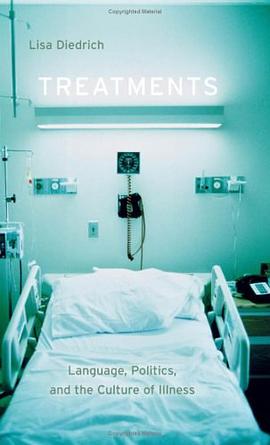

具体描述
Creative expression inspired by disease has been criticized as a celebration of victimhood, unmediated personal experience, or just simply bad art. Despite debate, however, memoirs written about illness--particularly AIDS or cancer--have proliferated since the late twentieth century and occupy a highly influential place on the cultural landscape today. In "Treatments, "Lisa Diedrich considers illness narratives, demonstrating that these texts not only recount and interpret symptoms but also describe illness as an event that reflects wider cultural contexts, including race, gender, class, and sexuality. Diedrich begins this theoretically rigorous analysis by offering examples of midcentury memoirs of tuberculosis. She then looks at Susan Sontag's "Illness As Metaphor, " Audre Lorde's "The Cancer Journals, "and Eve Kosofsky Sedgwick's "White Glasses," showing how these breast cancer survivors draw on feminist health practices of the 1970s and also anticipate the figure that would appear in the wake of the AIDS crisis in the 1980s--the "politicized patient." She further reveals how narratives written by doctors Abraham Verghese and Rafael Campo about treating people with AIDS can disrupt the doctor-patient hierarchy, and she explores practices of witnessing that emerge in writing by Paul Monette and John Bayley. Through these records of intensely personal yet universal experience, Diedrich demonstrates how language both captures and fails to capture these "scenes of loss" and how illness narratives affect the literary, medical, and cultural contexts from which they arise. Finally, by examining the ways in which the sick speak and are spoken for, she argues for an ethics of failure--the revaluation of loss as creating new possibilities for how we live and die. Lisa Diedrich is assistant professor of women's studies at Stony Brook University.
作者简介
目录信息
读后感
评分
评分
评分
评分
用户评价
相关图书
本站所有内容均为互联网搜索引擎提供的公开搜索信息,本站不存储任何数据与内容,任何内容与数据均与本站无关,如有需要请联系相关搜索引擎包括但不限于百度,google,bing,sogou 等
© 2025 book.wenda123.org All Rights Reserved. 图书目录大全 版权所有




















